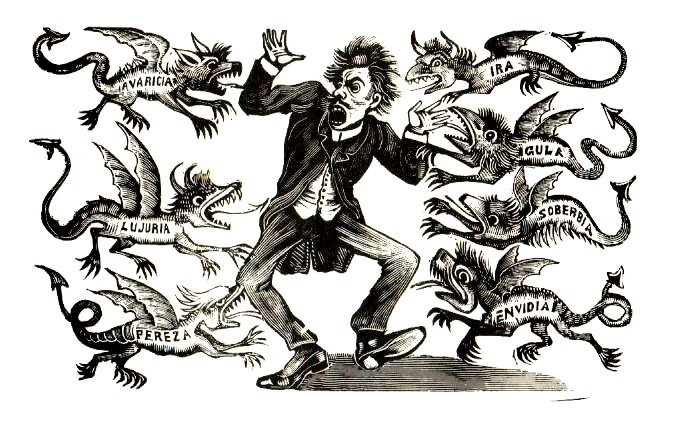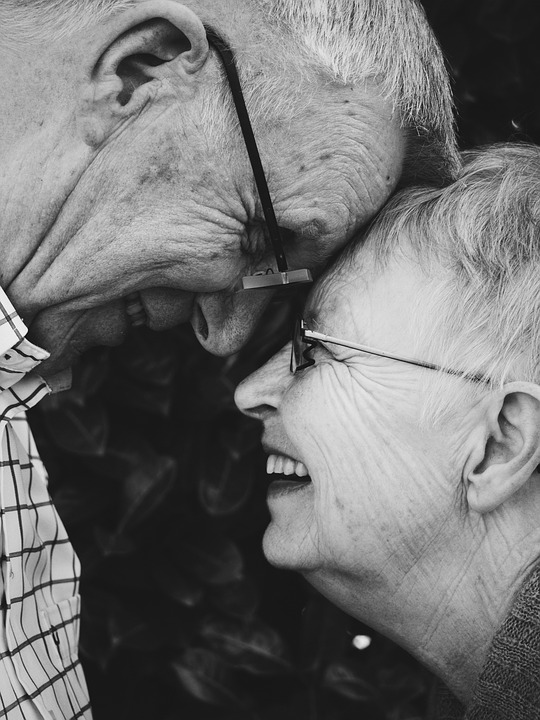The first forty years of our life-history write us a book, and the following thirty years are the commentary about it.
At twenty years of age, a man is a peacock; at thirty, a lion; at forty, a camel; at fifty, a serpent; at sixty, a dog; at seventy, a monkey; and at eighty, only a voice and a shadow.
Time reveals all things; it is a very intriguing old charlatan, speaking on a whim, even when no questions are asked of him.
There is nothing made by the hand of the poor intellectual animal (mistakenly called human) that sooner or later time cannot destroy.
“Fugit Irreparabile Tempus”—the time that flees cannot be restored.
Yes, time will bring to public light everything that is now hidden, and will cover and hide everything that at this moment shines with splendor.
Old age is like love; it cannot be hidden, even when it disguises itself with youthful attire.
Old age erodes the pride of men and humiliates them; behold, it is one thing to be humble and another to fall humiliated.
When death approaches, those old men who are disillusioned with life, they find that old age is no longer a burden. Notwithstanding, all men harbor the hope of living a long life and attaining old age, yet old age frightens them.
Old age begins at fifty-six years of age and thereafter is processed in septenary periods that lead us to decrepitude and death.
The greatest tragedy of old people lies not in the fact of being old, but in the foolishness of not wanting to recognize that they are old, and in the stupidity of believing themselves young, as if old age was a crime.
The best thing about old age is that one is very close to the goal.

The psychological “I,” the myself, does not become better with time and experience; on the contrary, it becomes more complicated, more difficult, more laborious. This is why there is a common saying that states, “Old people use their culture to torture, even in the sepulchre.”
The psychological “I” of whimsical old people consoles itself by giving beautiful advice, due to its incapacity of doing mischievous things. Yes, old people know very well that old age is a very terrible tyrant that prohibits them, under penalty of death, from enjoying the pleasures of crazy youth, thus they prefer to console themselves by giving beautiful advice.
The “I” hides the “I.” The “I” hides a part of itself, and thereafter labels everything with sublime phrases and beautiful advice. Yes, one part of the self-willed hides another part of the self-willed; this is how the “I” hides what is inconvenient for it.
It is completely demonstrated by observation and experience that when vices abandon us, we like to think that we were the ones who abandoned them.
The heart of the intellectual animal does not become better with time but worse: it always becomes stone-like, and if in youth we were covetous, impostors, wrathful, then in old age we will become even worse.
Old people live in the past; old people are the outcome of many yesterdays. Old people totally ignore the moment in which we live; old people are accumulated memory.
The only way of reaching perfect old age is by dissolving the psychological ego. When we learn how to die from moment to moment, we arrive at sublime old age.
Old age has a great sense of peace and freedom for those who have dissolved the ego.
When passions have died in a radical, total, and definitive manner, one becomes free from not just one tyrant, but many.
In life, it is very difficult to find innocent seniors who no longer possess even the residues of their “I.” These seniors are infinitely happy, and live from moment to moment.
A senior, grey-haired in wisdom, an elder in knowledge, a lord of love, becomes, in fact, a lighthouse who wisely guides the current of innumerable centuries.
There have existed and still exist in this world some aged Masters that do not even have the last residues of the “I”. These Gnostic Arhats are as exotic and divine as a lotus flower.
A venerable old Master who has dissolved the pluralized “I” in a radical and definitive manner is the perfect expression of perfect wisdom, divine love, and sublime power.
An old Master who no longer has the “I” is, in fact, the full manifestation of a divine Being.
These sublime Elders, these Gnostic Arhats, have illuminated the world since ancient times; let us remember Buddha, Moses, Hermes, Ramakrishna, Daniel, the saintly Lama, etc.
Parents and teachers of schools, colleges, and universities must teach the new generations to respect and venerate their elders.
That which has no name, that which is Divine, that which is the Reality, has three aspects: wisdom, love, and Word.
The Divine as Father is cosmic wisdom, as Mother is infinite love, as Son is the Word.
The father of a family is the symbol of wisdom. The mother of a home symbolizes love; children symbolize the Word.
An aged father deserves the support of his children. A father that is now old cannot work and it is proper for the children to support and respect him.
An adorable mother that is now aged cannot work and therefore, it is necessary that the sons and daughters take care of her and love her as if such a love were a religion.

Those who do not know how to love their father, those who do not know how to adore their mother, march on the left-handed path, on the path of error.
Children do not have the right to judge their parents. No one is perfect in this world, and those of us who do not have specific defects in one direction have them in another. The patterns of all of us were cut with the same scissors.
Some people underestimate paternal love, others even laugh at paternal love. Those who in life behave like this, have not even entered onto the path that leads towards that which has no name.
An ungrateful son who abhors his father and forgets his mother is indeed a true pervert who abhors everything that is Divine.
Understand: the revolution of the consciousness does not mean ungratefulness; it does not mean forgetting our father and underestimating our adorable mother. The revolution of the consciousness is wisdom, love, and perfect power.
The symbol of wisdom is found in the father, and the living source of love is found in the mother; indeed, without this purest essence of love, it is impossible to achieve the highest inner realizations.
Samael Aun Weor
Subscribe to our news, promotions and getting started lessons!


